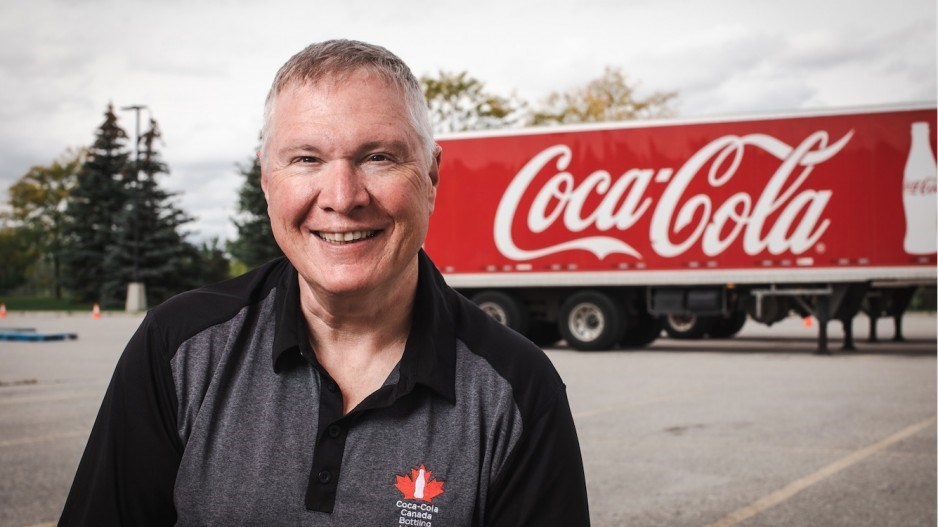Coca-Cola Canada Bottling Ltd. is investing heavily in British Columbia as it aims to strengthen its supply chains.
Of approximately $100 million that the company is investing across Canada, $42 million is set to be injected into two sites in Richmond, the company's CEO, Todd Parsons, told BIV.
That includes $24 million for a new bottling line at the company's 2471 Viking Way bottling plant, and $18 million to create a new 240,000-square-foot distribution centre at 8040 Zylmans Way that would be expected to open in spring 2024.
Coca-Cola Canada Bottling already operates a 120,000-square-foot distribution centre in Richmond, and an 80,000-square-foot distribution centre in Coquitlam, Parsons said. He added that those facilities will continue to operate for the next couple years, until their leases expire.
Global beverage giant Coca-Cola Co. (NYSE:KO) in 2018 sold Coca-Cola Canada Bottling for an undisclosed amount to Maple Leaf Sports & Entertainment principal Larry Tanenbaum and entrepreneurial whiz Junior Bridgeman, who may be best known as a former National Basketball Association player.
Of Coca-Cola Canada Bottling's 5,700 employees, 770 are based in B.C., with 550 in the Lower Mainland, Parsons said.
Those employees make Coca-Cola, and other beverages, such as Canada Dry and A&W Root Beer, from concentrates that the Coca-Cola Co. sells to the bottling venture. Those employees also distribute those beverages to approximately 5,000 B.C. retailers in the company's fleet of 49 iconic Coca-Cola-branded trucks. Unlike competitor PepsiCo Inc. (Nasdaq:PEP), Coca-Cola Co. does not produce snacks, Parsons explained.
Coca-Cola Canada Bottling's Richmond manufacturing plant currently operates 24 hours per day for five days a week. That's down from non-stop production during the peak of the COVID-19 pandemic, Parsons said. During that time, in-home Coca-Cola consumption soared.
The new bottling line will increase capacity to the point where operating hours might decrease, he said. The company expects sales to increase by about three per cent per year but Parsons could not say exactly how much volume he expects to produce once the new line is operational in spring 2023.
Parsons estimated that the current Richmond manufacturing plant produces the equivalent of about 480 million 355-millilitre cans per year.
Various sizes of polyethylene bottles are also filled, with the current bottling line requiring those bottles to be previously manufactured.
"Today, full-size bottles have to be manufactured somewhere else, shipped on a truck and delivered to the facility and then fed into the production line," Parsons said. "The new line can do a complete production from a pre-form."
By that he explained that the new line can take test-tube-sized polyethylene moulds and blow them into needed bottle sizes, fill the bottles and then label them.
With that technological advance, Coca-Cola Canada Bottling is able to rely on one truckload of pre-formed polyethylene moulds instead of what was previously 10 truckloads of ready-made polyethylene bottles.
"This reduces the carbon footprint dramatically," he said.




